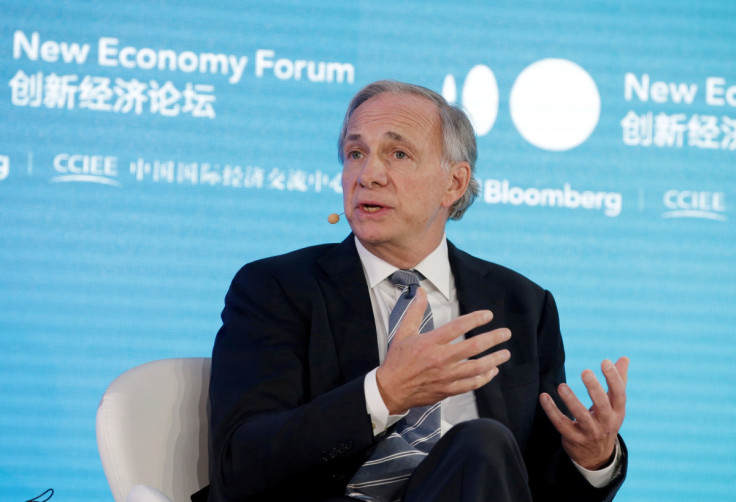Bridgewater's Ray Dalio Says US Tariffs Can Prepare the Country for a Global Conflict
Dalio says tariffs are imposed in times of great global power conflict

US President Donald Trump's 'Liberation Day' tariffs, including 10% higher duties on imports from scores of countries worldwide, escalated the ongoing trade global war as distraught leaders of developed and emerging nations work to navigate the impact on their economies.
While many corporate and world leaders and economists advised against tariff hikes, Bridgewater Associates founder and billionaire investor Ray Dalio shared some interesting insights in a recent LinkedIn post about why Trump is taking these drastic measures.
Dalio is renowned for his unique investing strategies, which balance market risks across asset classes while maximising return-to-risk ratios. His success at the hedge fund earned him a net worth of £10.62 billion ($14 billion). Dalio stepped down as the hedge fund's CEO in 2017 and continued as chief investment officer until 2022. The investor remains a mentor to the hedge fund's CIOs and senior managers. Bridgewater Associates currently has £16.55 billion ($21.81 billion) in assets under management, according to the latest regulatory filing.
Tariffs Could be Necessary Amid a Global Power Conflict
Dalio believes that tariffs are sometimes 'necessary' in times of an international 'great power conflict' as these higher taxes raise revenue for the country imposing them, lower reliance on foreign supply chains, and boost domestic production capabilities.
His belief that tariffs can be a way for countries to prepare their economies for global conflict aligns with his frequent warnings that the world is moving towards a high risk of war. In a 2021 book he published, Dalio predicted that the US-China competition would introduce fundamental changes to how the world is run.
'It has been said that China's RMB should be appreciated, which probably could be agreed to between the Americans and Chinese as part of some trade and capital deal, ideally made when Trump and Xi meet, he wrote.
Dalio explained that tariffs could lower current account and capital account imbalances, meaning that they could minimise reliance on foreign production and capital, which might help a nation during geopolitical conflicts.
While tariffs will likely make domestic firms less efficient due to potential global supply chain constrictions, they can survive as long as domestic consumer continue to buy their goods. Note that Dalio didn't imply that the US government introduced tariffs in anticipation of an impending war but offered insights into the general effects of these decisions and why a nation might take them.
Mounting US Debt Must be Tackled
In his LinkedIn post, Dalio also highlighted that the US government debt crisis must be solved as the federal debt-to-GDP ratio has shot up to 120% compared to 58% in the year 2000.
'The production, trade, and capital imbalances (most importantly the debts) must come down one way or another because they are dangerously unsustainable for monetary, economic, and geopolitical reasons,' he noted.
The US debt is currently over £27.31 trillion ($36 trillion), and Dalio warned in February that it could cause a 'heart attack' in the US financial system if it continues to grow unchecked. 'You're at a high risk of this heart attack, essentially, and now what are you going to do about it?' he had said.
The investor even noted that Elon Musk's Department of Government Efficiency's federal actions to slash the government budget might not be enough to resolve the alarming debt crisis.
© Copyright IBTimes 2025. All rights reserved.






















